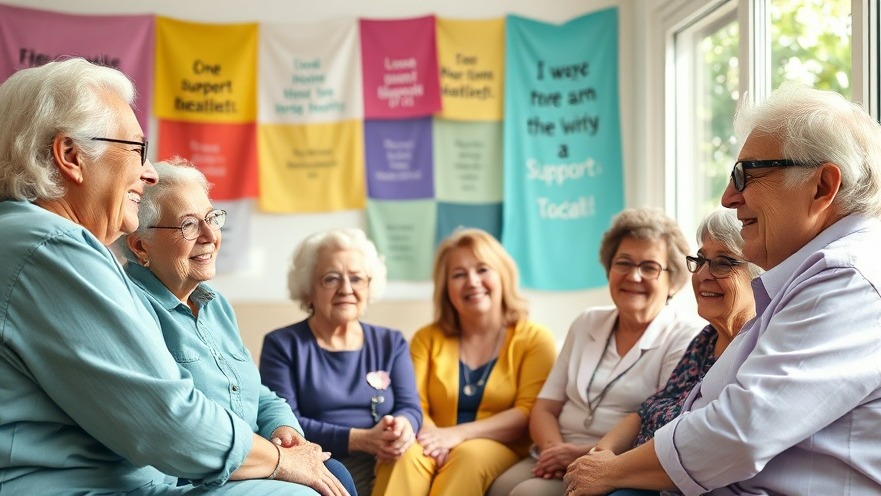
A Guide to LGBTQ+ Community Resources for Dementia
As the landscape of healthcare continues to evolve, it’s crucial for providers, especially those managing concierge medical practices, to ensure that all communities feel seen and supported. The LGBTQ+ community, often facing unique challenges related to dementia, requires tailored resources and inclusive care frameworks.
Understanding the Intersection of LGBTQ+ Identity and Dementia
Members of the LGBTQ+ community often contend with social stigma and reduced familial support systems when facing dementia-related challenges. This can lead to increased social isolation and heightened emotional distress. Addressing these issues, the Alzheimer's Association and their partners are working to create inclusive environments for LGBTQ+ individuals affected by dementia. Providing compassionate care and resources for LGBTQ+ patients in your practice can enhance their overall wellbeing.
Support Networks: Building Trust and Community
Support groups can be invaluable for LGBTQ+ caregivers and individuals living with dementia. Groups like ALZConnected® foster safe spaces where peers can connect, share their experiences, and access culturally relevant resources. For concierge practices, promoting such networks can cultivate a sense of belonging among patients and improve overall mental wellness.
Empowering Through Education: Key Resources Available
The Alzheimer's Association offers numerous resources specifically designed for the LGBTQ+ community. These include informational PDFs addressing unique challenges faced by LGBTQ+ individuals and their caregivers, along with access to SAGE's National Resource Center on LGBTQ+ Aging. Facilitating awareness of these resources among patients can empower them, allowing for more informed decisions in their care journeys.
The Role of Care Providers in Cultivating Inclusivity
As a concierge medical practice owner, it’s essential to embrace a patient-centered approach to care. This includes advocating for equitable access to dementia services. Training staff to understand the cultural nuances and specific needs of LGBTQ+ patients can enrich the practice's reputation as a caring, inclusive environment. Involvement in local LGBTQ+ events or collaborations with organizations like the Human Rights Campaign can also demonstrate your commitment to inclusivity.
Facing Challenges with Compassion
The complexities of dementia care can be distressing for both patients and caregivers, particularly within the LGBTQ+ community where support networks may be strained. Engaging with caregivers who share their transformative stories, like those of Barbara Meehan and her late partner, emphasizes the impact of community support. Their narrative serves as a reminder that every ounce of support can help diminish feelings of isolation.
Looking Ahead: The Future of LGBTQ+ Inclusive Dementia Care
With growing awareness and initiative, the future of dementia care for the LGBTQ+ community looks promising. Continued research, increasing advocacy, and enhanced caregiver support systems are vital for fostering resilience among those affected. By staying informed, medical practices can not only enhance patient care but also contribute to a larger movement towards equality in healthcare.
 Add Row
Add Row  Add
Add 






Write A Comment